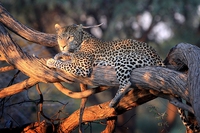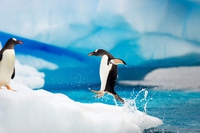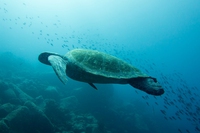
Leopard populations have declined dramatically, new research reveals
New research contradicts the widely held belief that world leopard populations remain high compared to other big cats. The species (Panthera pardus) has lost as much as 75 percent of its habitat range, according to the study published in the scientific journal PeerJ. The findings are the result of a three-year effort and provide the








